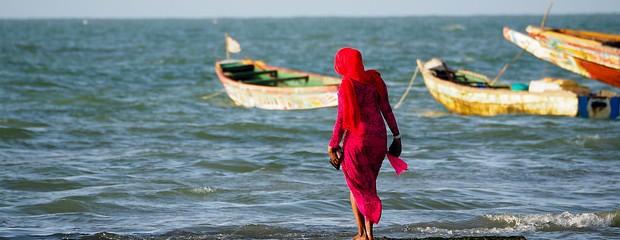Angola: ample reward for investors who do their homework – By Stewart Kelly

Whilst President dos Santos and close allies substantially control the Angolan economy, this should not preclude foreign companies doing business there.
Talk to officials from the Angolan foreign investment promotion agency, ANIP, and they will express bafflement that (non-oil-sector) US and UK companies are reluctant to enter the market. After all, Brazilians, Chinese, Portuguese, South Africans, and, most recently, Russians are all actively engaged in the country’s booming construction and financial services sectors, and are also present in other high-potential industries such as mining and agribusiness. The government has welcomed these foreign contributions to the country’s effort to recover from its devastating civil war, but it craves the technical know-how of major UK and US companies, in addition to the validation their presence brings for a governing class that views itself as an enlightened, modernizing force.
For their part, wary potential Anglophone investors come back to the same themes when explaining their tendency to treat Angolan appeals for investment as a siren’s song: corruption risk, political interference, and bureaucratic challenges. The need for caution””as symbolized most recently in the ongoing investigation of Cobalt Energy under the US Foreign Corrupt Practices Act””is clear and justified. But are British and US companies right to assume that the challenges of the Angolan market constitute insurmountable obstacles?
Those who cling to this assumption are choosing to forego the rewards offered by a country that has a seemingly unlimited set of needs and a willingness and ability to pay that surpasses perhaps all its African counterparts.
Key risk factors
There are undoubtedly significant political risks to consider. The President in effect controls the country’s commercial landscape: well-connected politicians, retired civil war generals, or members of the President’s immediate family are active in virtually all significant ventures in the country. It is extremely difficult for foreign investors to avoid such individuals entirely.
Given Angola’s oligarchic characteristics, local-partner selection is a major challenge. The government permits foreign companies to hold a 100 percent ownership stake in a local entity outside the oil sector, but in practice it strongly encourages local participation. The unofficial local-partner system acts as a substitute for overt corruption and is one of the means by which the President sustains the loyalty of confidants and potential political rivals alike. While the government may not always promote a specific individual or entity as a local partner, the limited viable options will most likely have ties to the regime. Such links may exist through military figures (so-called “business generals”), through entrepreneurs with strong ruling-party ties, or through the President’s family. It is also common for a nominal figure with no apparent political clout to represent the concealed interests of one of these groups in a joint venture.
The country also carries more overt corruption risks, but the situation has improved markedly””a development that snapshot rankings or indices do not reflect. In the recent past it was almost impossible to secure a permit or win a contract without paying bribes but within the current environment it is possible, with a sufficient understanding of the local context, to be successful while adhering to UK or US anti-corruption laws.
Managing risks
The government has a reputation for prickliness in its dealings with Western corporations, based in part on the fact that Angola is one of the few African countries that does not rely on foreign aid. But new entrants should not underestimate their own ability to influence the government and shape the terms of the engagement. To do so, they should develop a clear understanding of the local context and specific relevant risks, then craft a strategy to manage them. The following are five key points that potential investors should consider:
- Larger new entrants should recognize that their stature carries weight with the highly image-conscious regime and can potentially be used as a leverage tool. Investors should develop a deep understanding of where their commercial objectives align with Angolan strategic interests””local jobs and training being among the most important””and craft a messaging strategy that includes both Angola-centric goals and transparency commitments.
- Getting the local partner right is critical. By beginning the selection process long before any formal engagement with the Angolan government, investors can avoid the pitfalls of having one chosen for them. Robust due diligence is imperative given the potential risks associated with many prospective local partners. Foremost among these is the possibility that a partner, rather than contributing technical or other material support, may in fact be a proxy for senior regime figures, such as in the Cobalt example.
- The Angolan government mandates that all new entrants work closely with ANIP, a government agency that processes all foreign investment projects. The agency reports directly to the President and is headed by his ex-wife. ANIP can be a source of frustration given its relatively slow procedures and some issues with the quality of its staff, but it has improved significantly and operates in a relatively open manner.
- It is advisable to develop relationships with the ministers relevant to the specific project but the line ministries are generally weak and merely implement the Presidency’s policies and decisions. As implementers, however, they have the potential to aid or frustrate a new venture. The quality and clout of individual ministers varies widely, which will affect their ability and willingness to act as a partner and advocate.
- By clearly articulating standards at the outset and maintaining a steadfast commitment to them, a new entrant can be commercially successful in Angola while adhering to a strict set of anti-corruption principles. Petty corruption in the bureaucracy is pervasive, however, despite improvements at higher levels, presenting an operational challenge once a venture is established.
Investors that have chosen to forego the ample opportunity presented by Angola are right to be concerned about the level of risk involved. But an opaque market such as this favors those who are willing to develop a deep understanding of the operating environment and take proactive steps to manage risks where they exist.
Stewart Kelly is a consultant at Veracity Worldwide, a New York-based political risk and strategic advisory consultancy.






So, it appears that doing business in Angola is much like entering into matrimony; choose your partner wisely, treat him or her well, and the rest will follow.
[…] elsewhere Angola: ample reward for investors who do their homework, African Arguments Overheating threats overblown in Indonesia? ISI Emerging Markets Blog Irrational […]